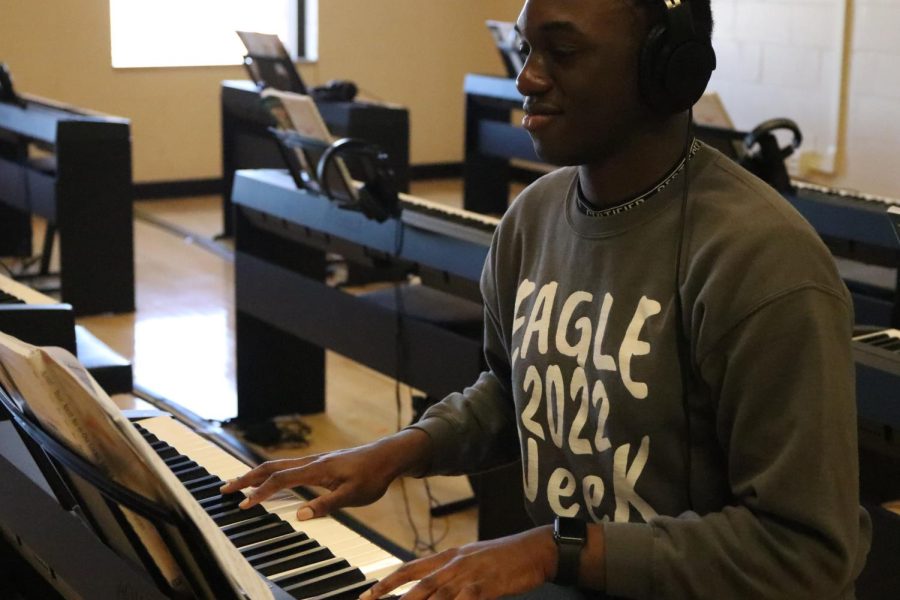Students connect with music
Music makes an impact on teenagers’ everyday lives
Junior Andrew Onema practicing the piano
February 16, 2023
It’s iconic: the image of a teenager holed up in their bedroom, music blaring. Regardless of whether music was played on a turntable or streamed through a service like Spotify, teenagers have long looked to music as a way to relax, to help them study or to just escape from the day.
According to HeadphonesAddict, 82% of teens say they listen to music every single day.
“I spend three to four hours a day interacting with music,” said junior Andrew Onema.“This includes choir, rehearsing for the school musical, and just listening to music in general.”
Listeners can connect with music in a myriad of ways. But music wasn’t always regarded highly as it is today.
‘’Back in ancient times, people thought music was so powerful it could change peoples’ behaviors and influence them,” said choir director Jennifer Gillis. “They thought it could be dangerous to listen to certain types of music, because it would make people go crazy.”
When a person listens to music, their brain releases dopamine, a neurotransmitter that causes you pleasure and motivation. Listening to happy music when a person is sad can make them feel better.
“It can create a healing environment during a time of uncertainty, “said Andy Freedman from an article from Princeton Health.
Music can also help people’s brains in more ways than just boosting moods, according to two neuroscientists at the University of Central Florida. Their research has shown that listening to music can also reduce seizures and assist in repairing brain damage. Music makes both sides of the brain at the same time, which maximizes learning and improves your memory.
Sometimes, listening to music can help students with memorizing study material.
“Creating a positive mood indirectly boosts memory formation,” said instructor Nicky Davis in her lesson on Study.com
Music is a big part of many HCP students’ lives.
Senior Ella Rowe said she loves to sing. She says she started singing before talking.
“Music has always been something I connect with. It’s the thing I love most,” Rowe said.
Participating in music activities can be an outlet for people. It helps them express themselves.
“Music has a power that validates our feelings and makes us feel heard, even when we don’t know what we are feeling in the moment,” Onema said.

